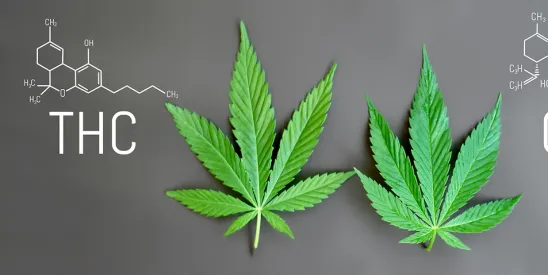On June 4, North Carolina Gov. Josh Stein issued an executive order creating the North Carolina Advisory Council on Cannabis. Stein elaborated on this decision in a recent interview with WRAL News.
The High Council (yes, that’s what we’re calling it now) is made up of 24 bipartisan members drawn from various governmental agencies, the legislature, law enforcement, public health, industry, and the Eastern Band of Cherokee Indians. Its mission is to study, assess, and ultimately recommend a comprehensive cannabis policy for North Carolina. A preliminary report is due by March 15, 2026, with final recommendations expected by the end of that year.
What the High Council actually accomplishes remains to be seen. But its formation suggests that the Tar Heel State may be ready to take up the issue of cannabis regulation in earnest.
A Little History Lesson
As many of our esteemed readers know, the 2018 Farm Bill created a legal distinction between “hemp” and “marijuana.” Under the Bill, hemp is defined as “the plant Cannabis sativa L. and any part of that plant, including the seeds thereof and all derivatives, extracts, cannabinoids, isomers, acids, salts, and salts of isomers, whether growing or not, with a delta-9 tetrahydrocannabinol concentration of not more than 0.3 percent on a dry weight basis.” Functionally speaking, marijuana is any part or derivative of the same plant that has a delta-9-THC concentration of more than 0.3% on a dry weight basis.
The Farm Bill removed hemp from the Controlled Substances Act, opening the door for a number of legal loopholes that allowed what many now refer to as “intoxicating THC products” to hit mainstream shelves. These products aren’t technically marijuana, but they will get you high.
The Status Quo, Bro
Following the passage of the Farm Bill, many states chose to regulate these now federally legal yet intoxicating THC products. North Carolina, however, has fallen a bit behind.
At the moment, legal intoxicating THC products sold in North Carolina have no age restrictions, meaning that children can legally purchase these products. Intoxicating THC products have no laboratory testing or labeling regulations either, meaning consumers often have no way of knowing what’s in the products they are ingesting. Of course, private sector companies have implemented age restrictions, laboratory testing, and labeling measures of their own accord, but as of now, they aren’t required to.
It is with this backdrop that our so-called “High Council” was created. The council is tasked with analyzing the above-described situation as well as the successes and failures of other jurisdictions to brainstorm and chart a regulatory path forward.
As a final note, it’s worth mentioning that hemp legislation in the form of HB 328 recently passed through both chambers of the legislature and could address some of these concerns (and potentially create a few new ones). If Stein signs it into law, it could shake up the state’s entire cannabis industry. We’ll be keeping an eye on that one for you.
Reading the Tea Leaves: What Stein’s Comments Suggest About the Road Ahead
In the WRAL interview, Stein laid out a few themes that may guide the High Council’s thinking and potentially shape any resulting legislation.
Stein’s focus appears to be primarily on preventing minors from being able to purchase intoxicating THC products. He wants to set a 21-year-old age limit and put limits on advertising, such as packaging referencing candy or other measures likely to appeal to minors.
Stein also wants to crack down on driving under the influence of THC. His policy would be to use government funds, theoretically obtained from regulation, to fund the development of technology that can readily detect a driver’s THC levels.
Rather than splitting cannabis into medical and recreational tracks, Stein indicated he favors a single regulatory framework, a “Cannabis Control Commission,” modeled after the Alcoholic Beverage Control Board (ABC) that would oversee all legal intoxicating THC products. He was unclear on which products would be available for purchase. In other words, we don’t know whether Stein wants to legalize adult-use marijuana or simply regulate hemp.
Finally, Stein said his administration is currently “looking into” his authority to expunge the records of certain individuals with cannabis-related convictions, indicating (and then backtracking) that this could become a priority of his administration if he can get a cannabis regulation bill passed. The High Council is being presented as a solution to the regulatory gaps currently facing the state. But anyone familiar with the legislative process knows how messy things can get. That said, there’s a sense of urgency here that hasn’t accompanied past cannabis efforts in the state Legislature. It’s probably prudent to remain skeptical and patient as things move forward, but we could very likely have a regulatory framework in place by the end of Stein’s first gubernatorial term.




 />i
/>i

